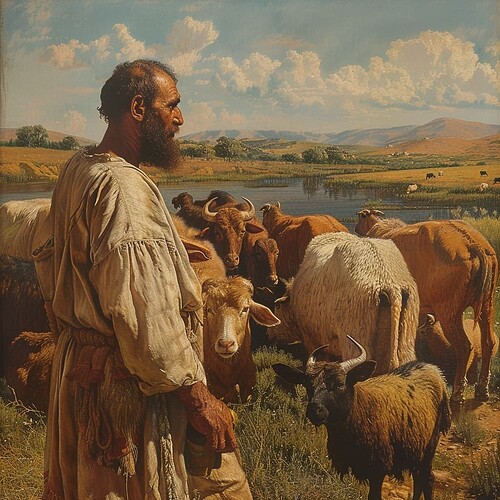 March 5: Leviticus 11: The Divine Dietary Laws
March 5: Leviticus 11: The Divine Dietary Laws
 Introduction
Introduction
Everything in the Bible has a spiritual significance, including dietary laws. Leviticus 11 outlines clean and unclean foods as determined by God, providing us with an intriguing and practical outlook on holiness in daily life.
 Clean Animals
Clean Animals
The chapter lists various animals that can be eaten (land animals that chew the cud and have split hooves, fish with fins and scales, certain kinds of birds, and some insects).
![]() Key Verse: Leviticus 11:3 “You may eat any animal that has a divided hoof and that chews the cud.”
Key Verse: Leviticus 11:3 “You may eat any animal that has a divided hoof and that chews the cud.”
 Unclean Animals
Unclean Animals
Concurrently, a list of animals is provided that cannot be consumed (pigs, rabbits, shellfish, birds of prey, amongst others).
![]() Key Verse: Leviticus 11:8 “You must not eat their meat or touch their carcasses; they are unclean for you.”
Key Verse: Leviticus 11:8 “You must not eat their meat or touch their carcasses; they are unclean for you.”
 Key Themes and Reflections
Key Themes and Reflections
Holiness in Daily Life: The complexity of the dietary laws illustrates how God’s concept of holiness permeates every aspect of life. It portrays the importance of conscious and ethical decisions in our daily routines as a means of holiness and cleanliness.
Separation: God’s laws differentiate clean from unclean, mirroring the spiritual separation required of His people from worldly practices. By obeying these laws, the Israelites marked themselves different, dedicating their lives to God’s service.
 Today’s Application
Today’s Application
Practically speaking, these dietary laws helped protect the Israelites from various health issues. Spiritually, they serve as a reminder that God cares about aspects of our life, even as minute as our diet. Today, this could translate into mindful living in various areas, not necessarily dietary, focusing on what’s healthy and righteous.
 Hidden Gem
Hidden Gem
While we, under the New Covenant, are not bound by these dietary restrictions (Mark 7:19), the essence of these laws - a careful, considerate, and deliberate approach to life grounded in God’s principles - remains relevant.
 Reflective Q&A:
Reflective Q&A:
![]() Why did God distinguish between clean and unclean animals?
Why did God distinguish between clean and unclean animals?
A: Primarily, it would serve as a daily reminder of their covenant with God and their duty to remain separate from the rest of the nations.
![]() Is the concept of clean and unclean applicable to modern Christian living?
Is the concept of clean and unclean applicable to modern Christian living?
A: Yes, while we don’t adhere to the dietary laws today, the principle of separation from what’s unclean, or sinful, still holds true.
 Join the Discussion:
Join the Discussion:
Share your thoughts on how you can apply the concept of ‘cleanness’ in your day to day life.
 See You Tomorrow in Leviticus 12,13:
See You Tomorrow in Leviticus 12,13:
As we continue exploring the ceremonial laws, we’ll delve into the purification process after childbirth, and the laws regarding skin diseases, respectively.
Remember, even in the seemingly mundane, there exist divine reminders urging us closer to God. Live mindfully. Stay blessed.
![]() Stay Updated: Don’t miss out on any updates or resources! Subscribe to our newsletter for all the Bible-in-a-Year posts and schedules delivered straight to your mailbox: Subscribe Here
Stay Updated: Don’t miss out on any updates or resources! Subscribe to our newsletter for all the Bible-in-a-Year posts and schedules delivered straight to your mailbox: Subscribe Here
![]() Explore Our Shop: Enhance your reading experience with related products from our store. Discover journals, mugs, and free digital downloads that resonate with this month’s themes: Visit Our Shop
Explore Our Shop: Enhance your reading experience with related products from our store. Discover journals, mugs, and free digital downloads that resonate with this month’s themes: Visit Our Shop
